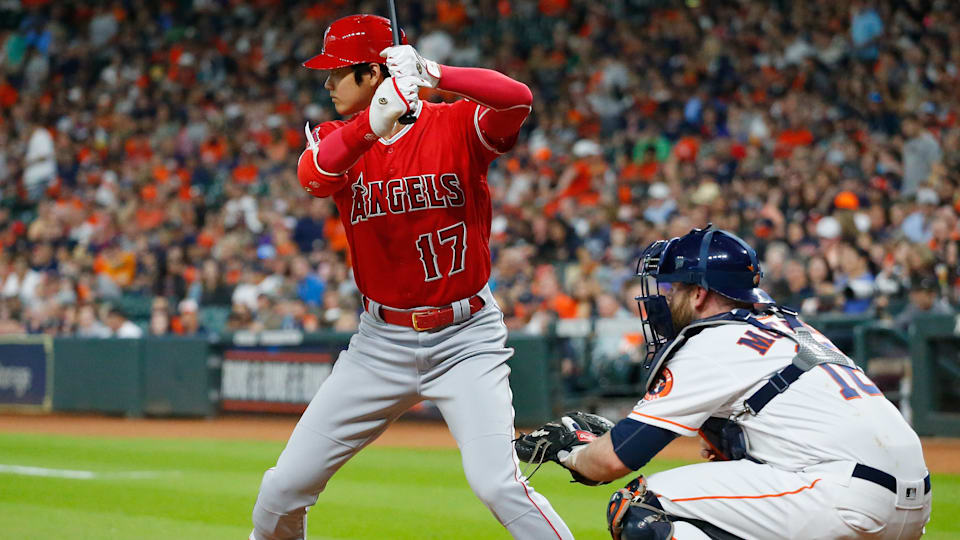
Baseball (for men) and softball (for women) will return to the Olympic arena at Tokyo 2020.
The sports last appeared at the Games at Beijing 2008, and the decision to bring them back was a home run in the Land of the Rising Sun.
Often dubbed America's 'National Pastime', baseball is also HUGE in Japan.
Here, we take a look at the key points regarding baseball and softball at Tokyo 2020.
An occasional Olympic background
Although appearing sporadically at the Games as an exhibition sport, baseball did not make its official Olympic debut until Barcelona 1992.
Cuba won the first two before being dethroned by the United States in the Sydney 2000 final.
The Cubans regained their crown at Athens 2004, but they had to settle for silver again in 2008 as South Korea ran out surprise victors.
Japan have won three Olympic medals in baseball including a silver in 1996.
Softball made its first of four Games appearances at Atlanta 1996.
Japan's women won a shock gold in Beijing, beating the United States who had won all three previous Olympic tournaments.
In 2013, the International Federations of baseball (IBAF) and softball (ISF) merged to created the World Baseball Softball Confederation (WBSC), which governs both sports.
Qualification for Tokyo 2020
Both baseball and softball will feature six teams at Tokyo 2020 with hosts Japan automatically qualifying.
The first softball team to join them was the United States, who beat Japan 7-6 in the final of the 2018 World Championships.
The four remaining slots go to the winners of the three continental zone tournaments.
The winners of the Europe-Africa and Asia-Oceania events will reach the Olympic Games, with the top two finishers from the Americas also going to Tokyo 2020.
Japan's first rivals in baseball will be decided at the WBSC Premier 12.
This veritable world championship is contested by the top-12 ranked nations as of the end of 2018 with the top finishers from Asia/Oceania (excluding Japan) and the Americas earning an Olympic spot.
The next berth will go to the victors in the Africa-Europe qualifying tournament which is contested by the top five in the 2019 European Championships and the winners of the African Championships.
Another slot will go to the winner of an Americas qualifying competition between eight teams, and the 2019 Pan-American Games champions.
The final qualifiers will come from an intercontinental tournament featuring six teams: the second-placed team in Africa-Europe qualifying, second and third in the American tournament; the best two teams at the Asian Championships yet to qualify, and the winners of the 2019 Oceania tournament.
Meaningful venue choices
Baseball enjoys huge popularity in Japan and stadiums are expected to be at capacity during the Games.
Softball will begin at the Fukushima's Azuma Stadium on 22 July 2020, with baseball getting underway at the same venue on 29 July.
The choice of Fukushima is particularly poignant, as the region continues its regeneration following the destructive 2011 Great East Japan (Tohoku) Earthquake and Tsunami.
WBSC President Riccardo Fraccari said, "As the biggest sport in Japan, we have a great sense of duty and honour to utilise baseball and softball as a vehicle and symbol of Fukushima's re-birth, and in this regard, there can be no better stage than the Tokyo 2020 Olympic Games to spotlight the region's regeneration to the world."
Both sports will then continue continue at Yokohama Stadium, with the women’s final on 28 July, and the men’s on the penultimate day of competition, Saturday 8 August.
To MLB, or not to MLB?
There is continuing uncertainty over the participation of North America's Major League Baseball stars at Tokyo 2020.
MLB officials have previously indicated that they would be reluctant to put the league on hold in the middle of their summer.
As well as preventing the United States from selecting their best team, this would also stop Japan's top talents like Shohei Ohtani of the Los Angeles Angels, and LA Dodgers pitcher Kenta Maeda from taking part.
But Japan's Nippon Professional Baseball league will stop during the Olympics, enabling the host nation to field a strong team, increasing their chances of victory.
And with hoards of passionate Japanese fans cheering them on, in both codes, there may have never been a better opportunity for a Japanese golden double in both events.
South Korea, baseball gold medallists in 2008, are also expected to benefit from a pause in their league for the duration of the Games.
